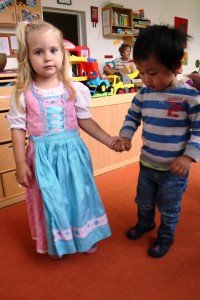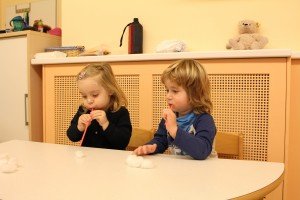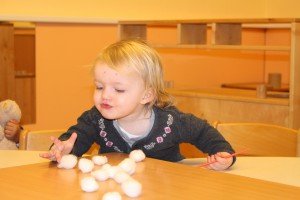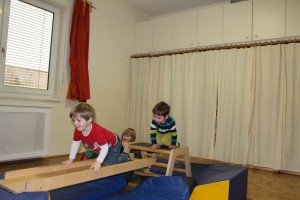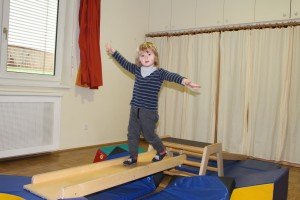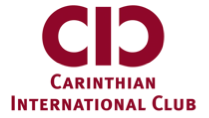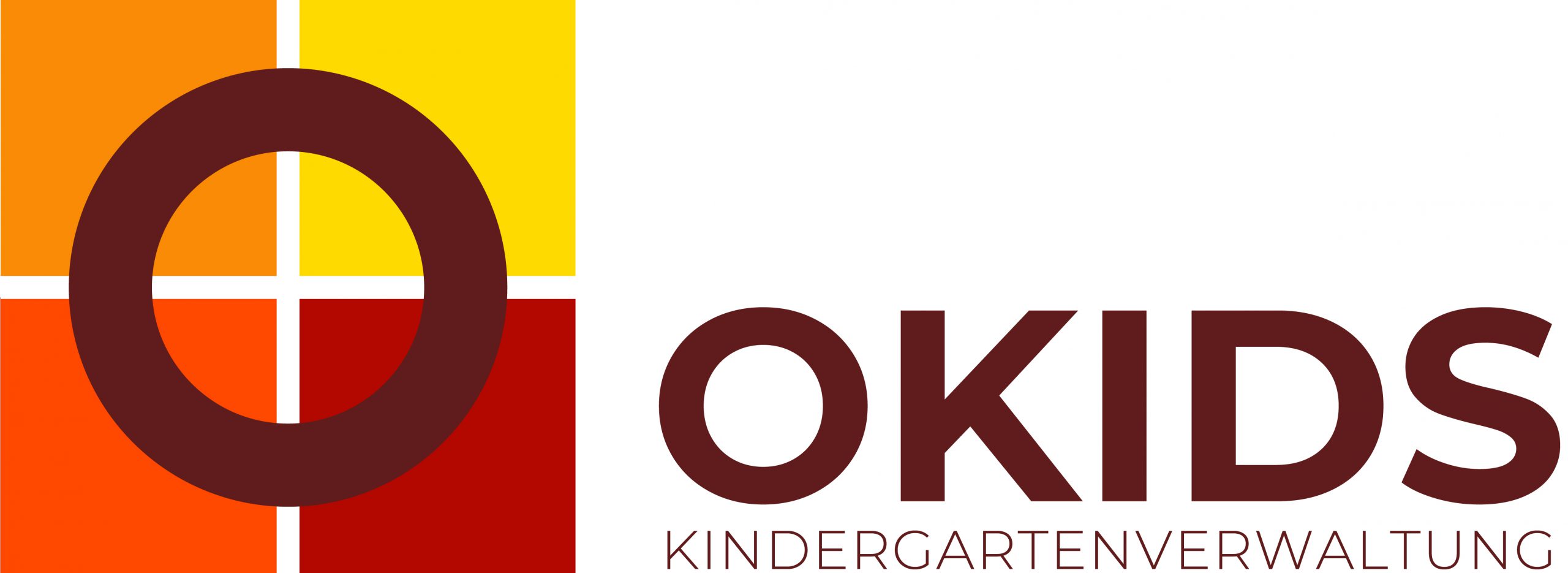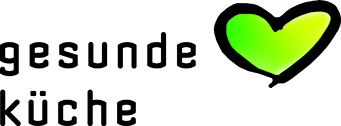Aim of the educational work = holistic competence development from the beginning!
We are aware that the age between one and three years is of special importance for learning skills and competences and influences the further development.
The following competences should be acquired by the children:
I. Self competence: I can be me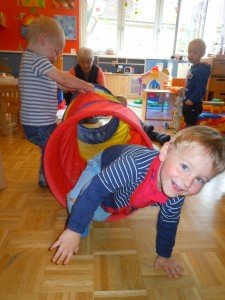
This means for us, to support and promote the individuality and personality of every child, in its entirety. The children should develop an „I can do“attitude, in order to establish confidence in their own mental and physical abilities. We encourage the children to independently walk their own path while we are available to assist them with guidance and observation. To strengthen self-competence, it is important to us to give the children many varied sensory experiences – children discover the world around them with all their senses. For this, they need to have free scope and realm of experience in the indoors and outdoors.
2. Social competence: Together we are strong
The group is an important place for learning and experiencing. The basic needs – love, security, tolerance, appreciation, and safety – are lived and experienced. We see the day care centres as places where every child, regardless of age, nationality, special needs and social position, can develop. Every child with us has the possibility to build a trusting relationship with their new care-giver. Through getting to know other children, the relationship diversity is demonstrated and experienced.
“CHILDREN NEED CHILDREN” – whilst interacting in a group, children develop the ability to get to know one’s own interests and those of others; to deal with conflicts and to learn to develop non-violent solution and strategies. Here, children have the opportunity to experience a natural coexistence in a child-friendly environment and to also experience themselves in different roles. Children in mixed-age groups are mutually inspirational, motivation boosters, role model and consolers (as it used to be in large families). This appreciation experienced in the group allows children to show respect and esteem towards others as well.
Dealing with rules and limitations
In order to provide the children with a point of reference in relation to time, everyday life is structured by fixed points (shared meals, shared breaks, etc.). Rituals are extremely important for the children. They give the children a sense of safety, support, security, orientation and group cohesiveness. We differentiate between the rituals of everyday life by providing the children with points of reference (communal snack, brushing our teeth together, common rest periods, etc.) and yearly rituals too (Lantern Festival, Christmas, Carnival, Easter and Birthday parties). Just as rituals are important, boundaries are also important.
Rules and boundaries create a framework in which the children can evolve freely and are a token of love and security. Therefore, we attach great value to the children getting to know our rules and limits:
- We treat each other respectfully
- We do not hurt each other
- We do not disturb others while playing
- We take nothing away from each other
- We do not intentionally break anything
- We tidy away the toys and materials after use
Here we are particularly dependent on cooperation from the parents, because children comply much better to these basic rules if they also experience them at home.
3. Expertise: The grass does not grow any faster if you pull it.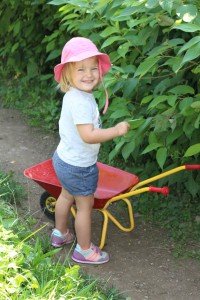
We want to nurture the child in its entirety and offer children a variety of options in the fields of language, movement, rhythm, music, visual design, crafts, nature experiences etc. However, we attach great value to a child’s freedom of expression, being able to individually perceive and discover their own inner and outer worlds. As a companion and observer we encourage the child to find their own way.
In a prepared environment – according to the age and needs of the child – the children have the choice whether to participate or not. It is equally important that the focal point is on the action, not the result. We divide “playing” into free play and guided activities: free play has great significance. In a prepared and relaxed environment, a variety of materials according to age are at the child’s disposal. Current topics (for example, the annual cycle) are also included. Thus, the child has the opportunity to playfully learn according to their developmental focus and their interests (playing is learning). The pedagogues take on the active role of observers. In the case of the guided activities, selective targeted proposals are offered to the children in the areas relating to being creative, musical, linguistic and motor skills.
Language development
Language development of children means the following to us:
- to monitor one’s own actions linguistically
- to give meaning to every expression of the child
- to promote the enjoyment of language by experimenting with language
- to work with rhymes, verses, songs, narrated and read stories
- to respond to questions of the child
- to give a verbal feeling of expression and fluency
- to be a linguistic role model.
Movement and motor skills
Motor development is an important component of mental development. We value the fact that children need lots of movement. On one hand, games of movement and freedom of movement are offered (indoors and outdoors). On the other hand, we offer special projects that promote motor skills in particular (for example: forest days, toy-free group room, natural garden). You can not draw a clear line between self-competence, social competence and expertise as they go hand in hand and build on each other.



